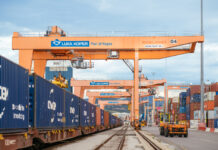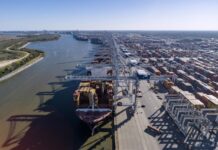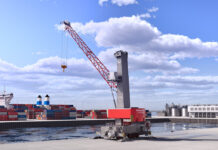
Covid-19 crisis management is a must for supply-chains since the beginning of this year and if shippers were interested in how shipping lines were helping to make sure that cargo keeps moving here are some pointers from Maersk Line.
In the first instance Maersk established a well-defined crisis management team to co-ordinate the line’s response to the virus in January. The crisis team co-ordinates the response across all Maersk businesses.
“Here we cover the safety of our colleagues, network delivery and other business continuity aspects. We take decisions, act fast and work to ensure our customers get one aligned message. Here we also leverage all the learnings from previous large-scale disruptive events like the 2017 global cyber-attack,” a Maersk spokesperson told Container News.
Maersk was prepared for an event such as the virus attack by ensuring that its office-based staff were equipped with laptops, “pre-configured and tested to work and access relevant systems from home”.
In addition, Maersk Line had a “Pre-established schedule recovery and service cancellation plans across the majority of our services, in other words when disruptions happen or blankings are triggered our pre-made plans can be executed and communicated faster,” explained the spokesperson.
Standardisation was also key to the response that would allow the flow of cargo to continue to handle freight when one area or region is blocked or unable to handle cargo another region can take over cargo operations.
Smoothing the passage of freight are the crew and Maersk says the safety of our seafarers is vital. However, with an increasing number of ports around the world, including China, are preventing vessels from docking within two weeks of leaving its previous port, it is important to prevent the virus infecting crew.
It is for this reason that at the outset of the spread of the Covid-19 disease the pre-established protocols came into force to protect Maersk’s seafarers and minimise the risk of infection and that meant limiting the number of interactions with external parties, and there were protocols for handling cases where crew who were showing symptoms of infection were cared for.
“Recently we decided to suspend all crew changes for one month, first and foremost for the safety of our crews, and secondly to minimise the risk of vessels being quarantined by port authorities and any related disruption for our customer’s cargo,” explained Maersk’s spokesperson.
Nick Savvides
Managing Editor




